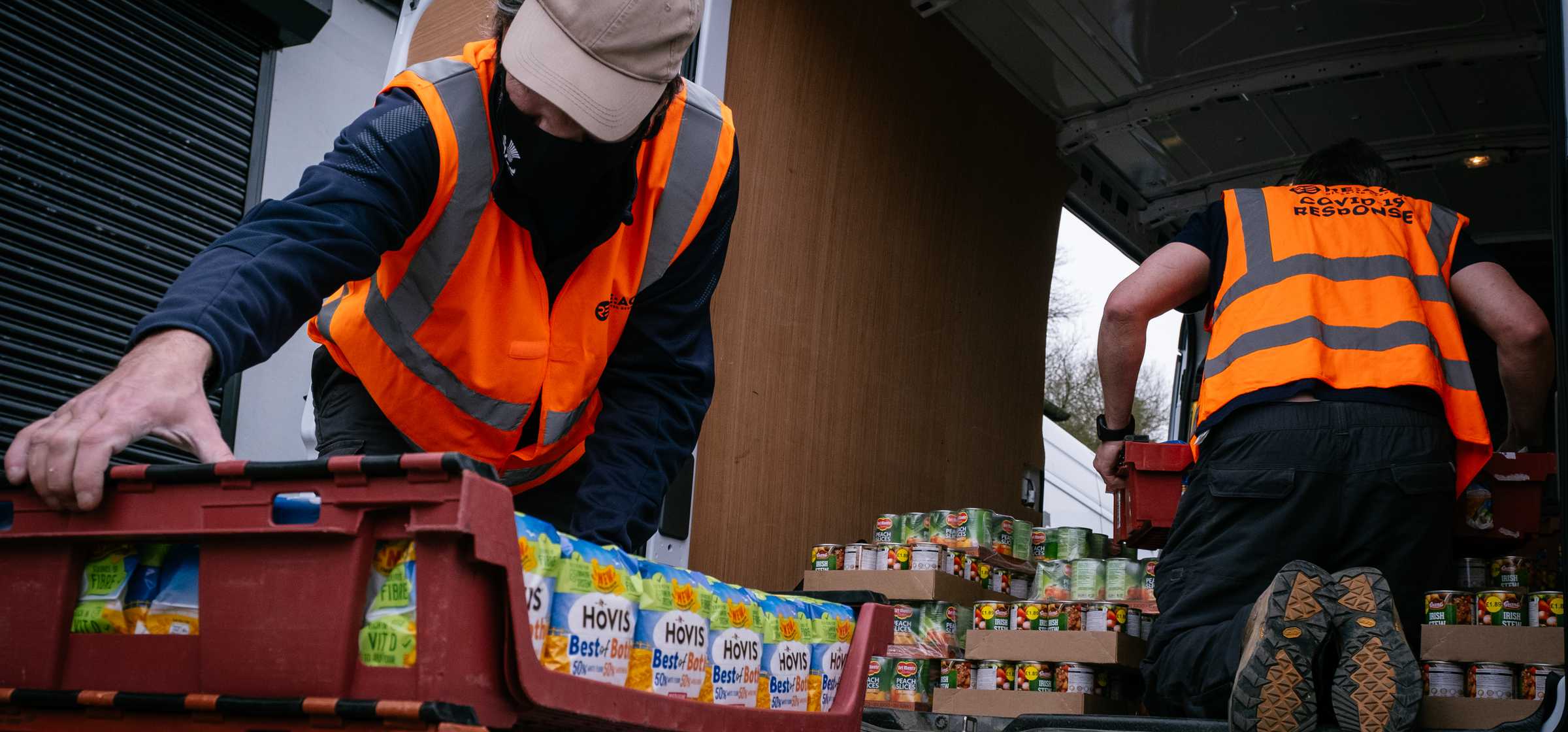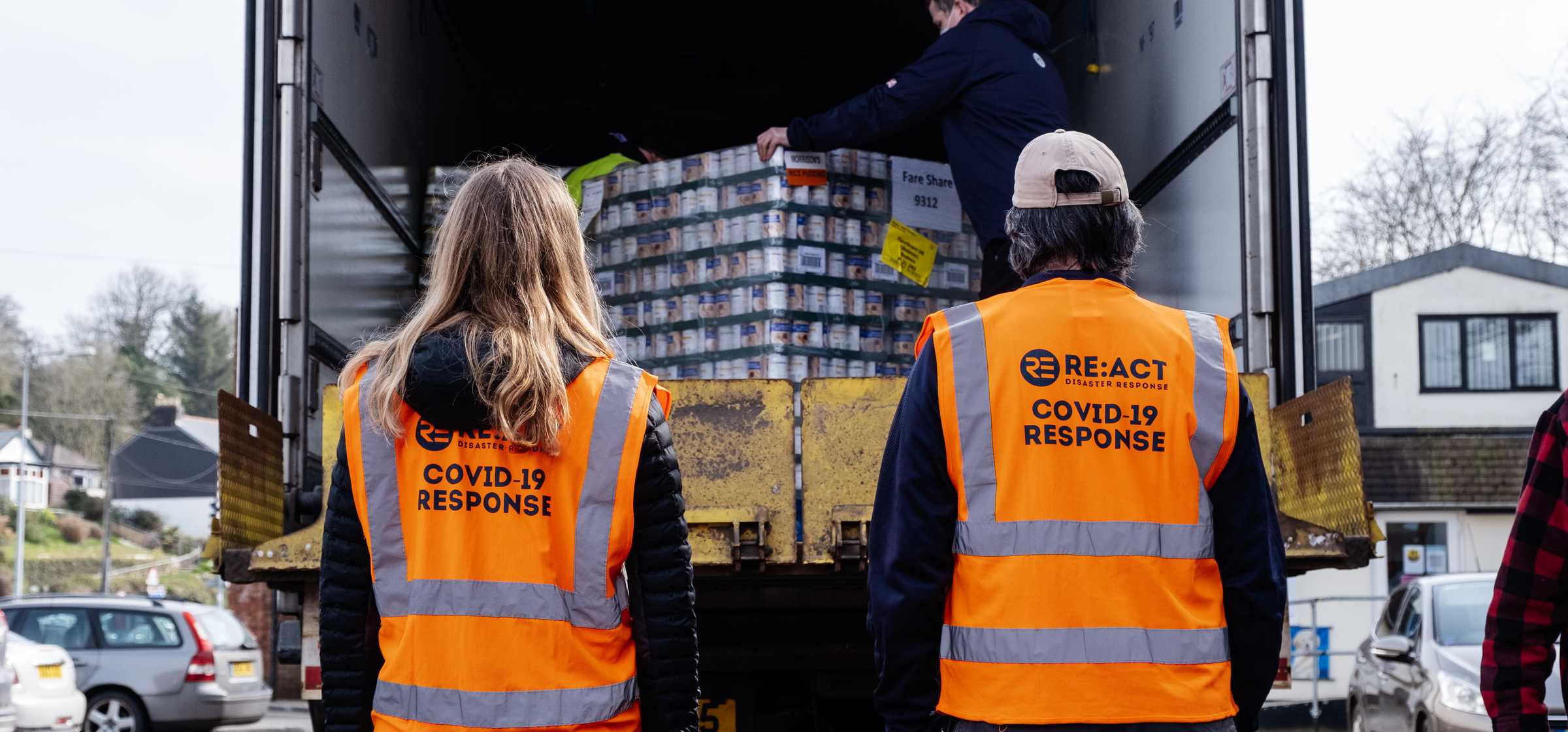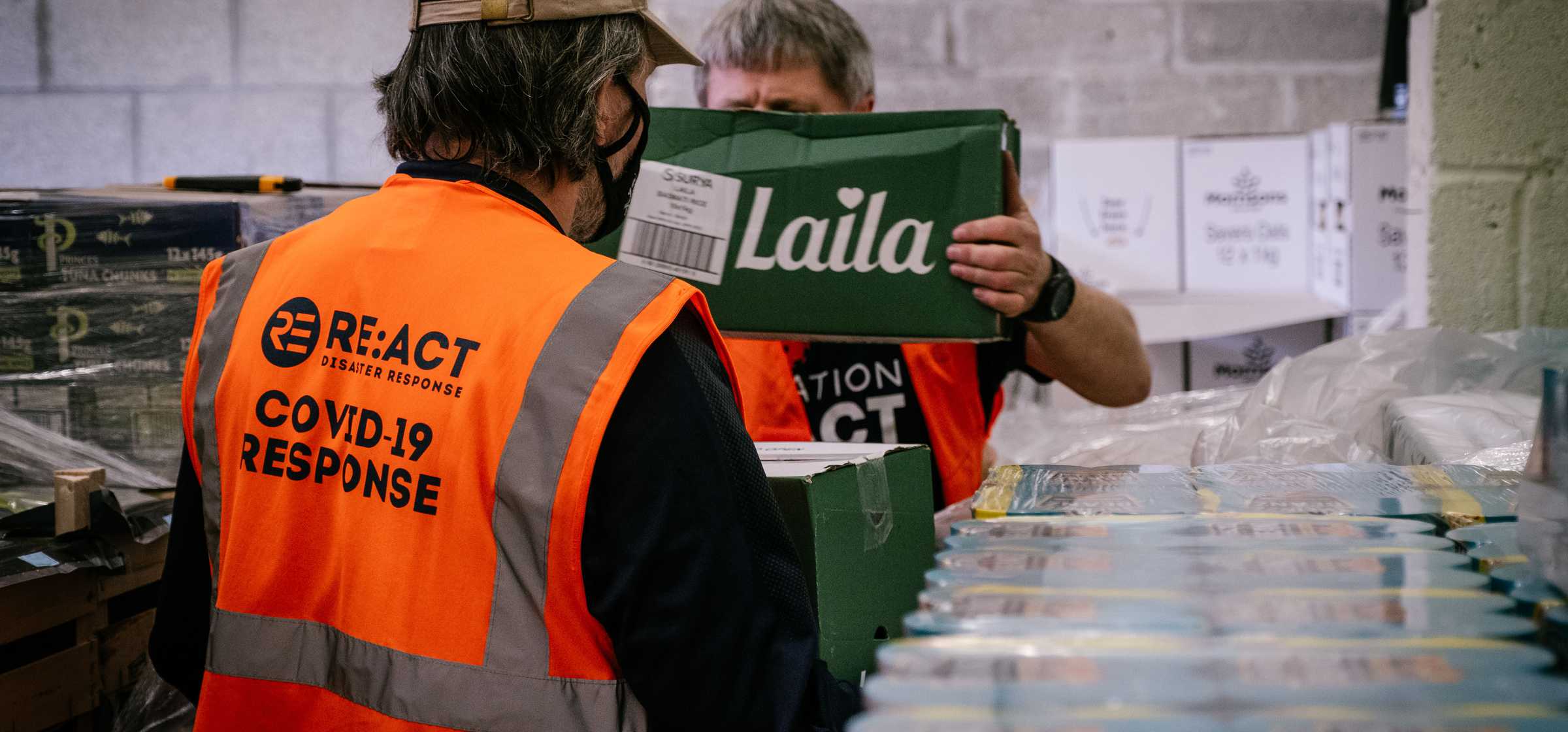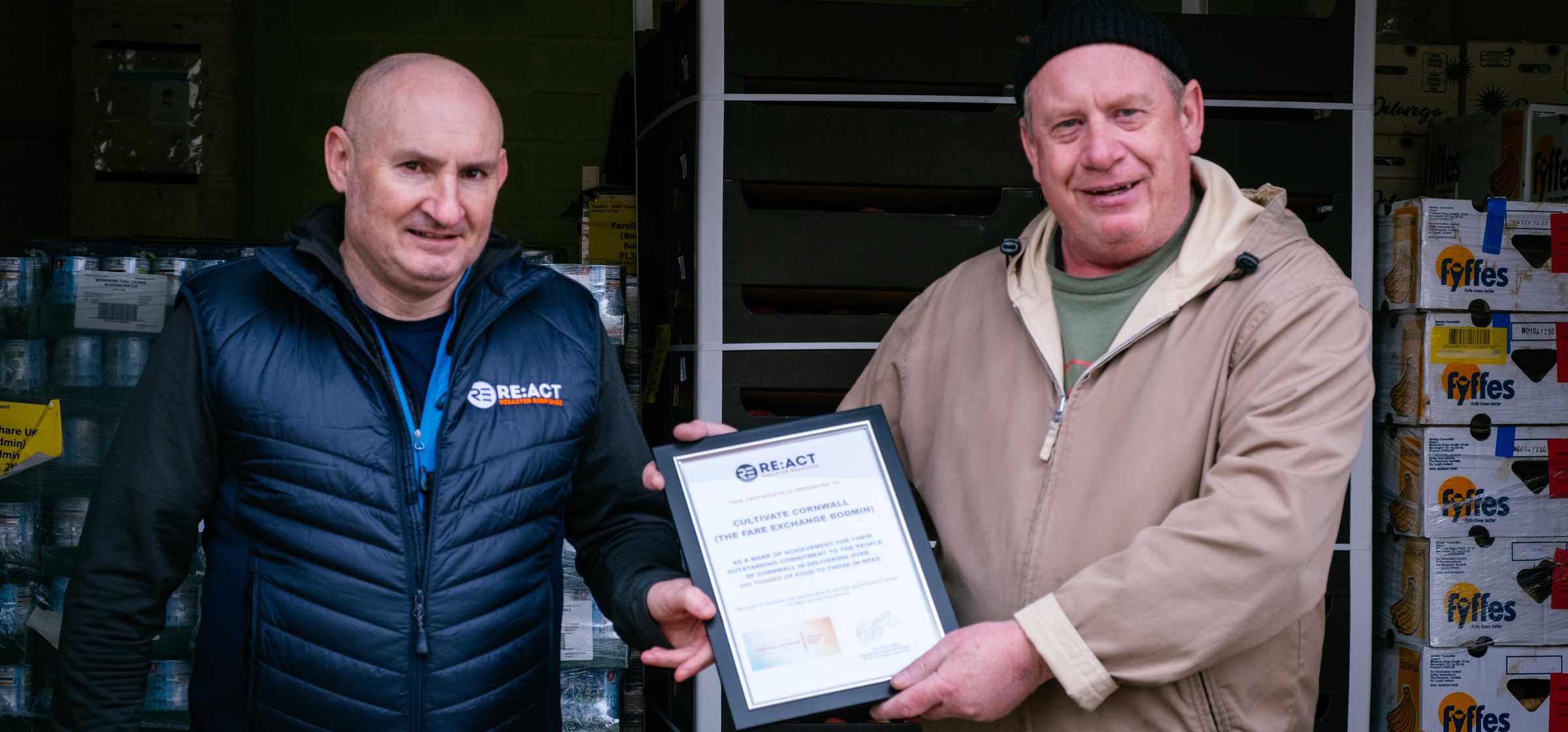Cultivate Cornwall: Supporting the local community through the pandemic

Posted by Alex Whitty 26th April 2021 Interviews
Estimated Reading Time: 6 mins
Cultivate Cornwall is a community interest company (CIC) founded in 2016 to create opportunities that benefit the people of Cornwall. When Covid hit, Cultivate Cornwall used its local knowledge and network to help support people in need. We caught up with co-founder John Lakey to find out more.
Tell us about Cultivate Cornwall…
We run all kinds of workshops and events that bring people together to learn new skills and give them experiences they wouldn’t otherwise get, like running open-air cinemas and fashion shows.
Much of what we do is built around sustainability. We have a couple of shops, one used as a community hub for events, the other to teach textiles. We recycle industrial textile waste into all kinds of things, for instance beekeepers’ suits, that we sell for profit and put the money back into our community projects. Once, we made a mile of bunting on the beach – we took a gazebo and our solar-powered sewing machines and turned it into a day out.
We try to include an element of fun in what we do and the staff and volunteers who support us bring their passion and enthusiasm too. Really, it’s about local people helping their local community.
Sounds very entrepreneurial. What was the inspiration behind it?
Cornwall is world famous for its natural beauty but it’s a place of extremes; for every idyllic beach or coastal walk, there are areas of serious deprivation and high unemployment.
I was brought up on a council estate and education wasn’t seen as a solution to life’s problems, so I left school without any qualifications. I travelled a lot, met my wife overseas and returned to Cornwall with just £200. We started a business that created hand-made paper from organic plant-based material and it became very successful. But I became disillusioned with the commercial side of it and business started to slow down so I applied to Falmouth University as a mature student.
It was at university that I met my business partner, Harry Deacon. I was the odd one out as I was in my late 40s and Harry was 19 but we got talking about the lack of opportunity for young people in Cornwall and discovered we shared the same ideas. Harry was coming at it from his perspective of people his age, and the big motivating factor for me was wanting my son to have a better future.
So we set about doing something to change it.

How much impact has Covid had on Cornwall?
It’s been difficult for a lot of people.
At the start of the first lockdown, we could see the looming food crisis that was about to hit. We listened to what support people needed and food was one of the key areas. There were a lot of people shielding, especially in rural regions, who just didn’t have access to food, or the schemes that were in place just didn’t reach them.
We had met FareShare South West the previous year when we were invited to an event in Devon. Cornwall was known as the last frontier as it was the only region in the UK without a FareShare network. We started the process to become a FareShare member but nothing was in place when Covid arrived. So as soon as we realised food poverty and insecurity would be a big issue in Cornwall, we contacted FareShare South West to speed up the process.
They helped us secure supermarket collections but it wasn’t enough as demand was so high, so they organised collections from their food distribution hub in Bristol. By this stage, Cultivate Cornwall had run out of money, we couldn’t pay our shop rent, but we got hold of emergency funding and I bought a van for £750 out of my own pocket and started making the weekly trip to Bristol.
That’s when we set up Fare Exchange Bodmin and began running a food bank out of our textile workshop, which we’d had to close at the start of lockdown.
How much demand for food have you seen during Covid?
We’ve supplied 275 tonnes of food since we began in March 2020, which is enough for 7.5k people a week. We would’ve done more if we could.
We started collecting a pallet a week from Bristol, but FareShare South West managed to increase this to two pallets, and if we were lucky we got three if food went unclaimed. I made those trips in the van which could take one pallet of food at a time, which is about 0.5 tonnes, so I was spending about 15 hours a week making roundtrips to Bristol.
Word of mouth spread and other community groups and food banks in Cornwall contacted us. We had people telling us they hadn’t eaten for three days, they were desperate. It wasn’t just the normal areas of deprivation, we also started supplying community groups in St Ives and Penzance, which you associate as affluent areas. But these were often self-employed people whose work suddenly dried up and they slipped through the gaps. They still had bills going out and families to support but no money coming in.
The people we were helping are incredibly proud, they’re used to working, so it’s difficult for them to accept support. There’s a stigma around being poor and pride is all they’ve got left.
We know these people, we live in the community, we’ve grown up on the same estates, gone to the same schools, our kids are friends. We don’t want to take away their pride. We just want to stop people suffering. We don’t care the reason you need help; if you’ve come to us, it’s because you need it.

How did RE:ACT get involved?
I first became aware of RE:ACT when they sent a team to support the distribution hub in Bristol. One of their ideas was to move food closer to where it was needed in Devon and Cornwall and set up a collection point in Exeter, ahead of the planned FareShare South West distribution hub that would better serve Devon and Cornwall.
RE:ACT took it on and quickly got the Exeter collection point operational with the help of British Red Cross. It massively reduced time on the road which meant giving more time to supporting the community during the peak of last summer.
Towards the end of 2020, after the Exeter collection point had ceased operating, we had secured our own lorry delivery and a spare unit, which meant 20 tonnes of food per week. But we had no experience of large-scale logistics and we only had four people.
That’s when I got back in touch with RE:ACT and they sent a team to support us and bring their experience and knowledge with them. They also brought their enthusiasm and never asked for anything, they wouldn’t even let us pay for their parking. The least we could do was make them bacon sandwiches and pasties. They didn’t mind accepting those!
What we’ve managed to do with Fare Exchange Bodmin these past few months wouldn’t have happened without RE:ACT. We learned from each other, we formed new friendships as well as a partnership, and I’m sure if we need them again, they’ll be there.
What’s next for Cultivate Cornwall?
Thankfully demand for food has eased up, so we’re taking a few weeks off to recharge. The past year has burnt us out really. The reason we’ve continued has been thanks to the volunteers who support us. Their resilience has been incredible. It would’ve been easy to walk away, to not do anything and take a year off. But instead we gave it our all, as best we could, and we’ve helped to support a lot of people.
We’ll continue to run Fare Exchange now we’re established, and we have 100 partners and community groups who want to sign up with us.
During Covid we also set up a service to repair donated musical instruments for people to borrow, especially school children who lost access to instruments when schools shut. The textile workshop will start up again soon, we’re expecting a delivery of 60 tonnes of textile waste in the next three months. We’ve got three festivals booked where we’ll take along some of our instruments so people can have a jamming session in a marquee, we’ll also run textile workshops there and do free repairs for clothes and tents.
It’s been difficult this past year with the amount of poverty we were faced with, so we want to bring back some fun.
Find out more at www.cultivatecornwall.com

Help us continue our life-saving work at home and overseas. Please give what you can.
